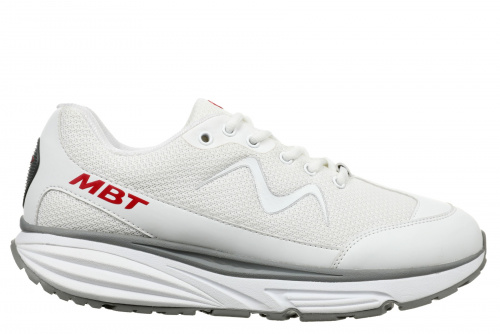Pandabuy Shoe Store: Your Ultimate Destination for Trendy Footwear
Pandabuy Shoe Store: Your Ultimate Destination for Trendy Footwear
Blog Article
Top Fads in Shoes Ecommerce for 2024: What You Need to Know
As we approach 2024, the landscape of footwear eCommerce is positioned for considerable change, driven by ingenious trends that promise to improve consumer communications and buying behaviors. Secret growths such as AI customization, sustainability efforts, and the surge of social business are readied to redefine just how brands get in touch with their target audiences. In addition, innovations like digital try-ons and registration versions will additionally enhance the buying experience. Recognizing these trends is crucial for any kind of sector stakeholder aiming to continue to be competitive in a rapidly developing industry. What ramifications do these shifts hold for the future of shoes retail?
Increase of AI Customization
The increase of AI personalization in the footwear eCommerce industry is reshaping the way customers involve with brand names. As retailers take advantage of advanced formulas and maker understanding, they can currently customize the buying experience to private choices, boosting consumer satisfaction and loyalty. Through information evaluation, AI systems recognize patterns in consumer actions, enabling brand names to use individualized item recommendations, promotions, and content.
As an example, dynamic item display screens change in real-time based upon customer interaction, ensuring that customers exist with designs that reverberate with their preferences. This level of modification not only boosts the buying experience yet also drives conversion rates, as customers are much more likely to purchase products that line up with their choices.
This boosted interaction fosters a deeper link between customers and brands. pandabuy. Accepting this pattern is necessary for brands aiming to grow in the affordable landscape of 2024 and past.

Sustainability in Shoes
Highlighting sustainability in shoes has actually come to be a critical emphasis for brands as consumers increasingly prioritize environmentally friendly methods. The shoes sector is reacting by adopting sustainable products, ethical manufacturing techniques, and transparent supply chains. Brands are currently using recycled materials, such as plastic and rubber, to produce fashionable and resilient shoes. This shift not just minimizes waste but also attract environmentally mindful customers.
In addition, firms are executing ingenious production strategies that decrease carbon footprints. For circumstances, 3D printing and automated production processes minimize material waste and energy consumption. Additionally, several brand names are committing to moral labor methods, making certain fair salaries and risk-free working conditions for their staff members, which resonates highly with today's socially aware customers.
To enhance sustainability initiatives, brands are likewise focusing on the idea of circularity. This consists of take-back programs that encourage clients to return old shoes for reconditioning or reusing, thereby expanding item life and lowering garbage dump waste. As the demand for sustainable footwear remains to increase, companies that prioritize environmentally friendly methods will likely get an one-upmanship in the industry, promoting brand commitment and attracting brand-new consumers devoted to sustainability.
Growth of Social Commerce
Capitalizing on the increase of social media sites platforms, brand names are progressively integrating social commerce into their sales methods, identifying its potential to engage consumers straight. This trend has actually changed exactly how consumers discover and purchase shoes, with platforms like Instagram, TikTok, and Facebook developing into crucial sales channels.
Brands are leveraging shoppable blog posts, online streaming occasions, and influencer collaborations to develop immersive buying experiences that reverberate with their target audience. By utilizing aesthetically enticing material and authentic storytelling, footwear brands can successfully display their items browse around this site and cultivate a sense of neighborhood among consumers.
Furthermore, using user-generated material has come to be vital in building count on and reputation. When they see real people using and supporting the items, consumers are a lot more most likely to purchase shoes. This natural form of advertising and marketing not just enhances brand name commitment yet additionally drives conversions.
As the landscape proceeds to advance, footwear brands should continue to be active, adjusting to the most recent social commerce functions while assessing customer behavior to maximize their approaches. By embracing this development, brand names can catch the attention of a wider target market, inevitably improving and driving sales customer involvement in the competitive ecommerce market.
Virtual Try-Ons and AR
Changing the on-line buying experience, digital try-ons and enhanced truth (AR) technologies are becoming crucial devices for footwear brands in 2024. These technologies permit customers to picture just how footwear will certainly fit and look before buying, addressing among the most significant discomfort points in on-line purchasing: uncertainty about fit and style.
By leveraging AR, consumers can use their mobile phones or tools to see a realistic overlay of shoes on their feet. This immersive experience not just improves interaction yet also substantially decreases return rates, as purchasers are a lot more positive in their selections. With the expanding class of AR modern technology, shoe brand names can develop personalized experiences, allowing customers to customize shades, patterns, and styles in actual time.
Moreover, digital try-ons are being integrated right into social networks systems, making it less complicated for consumers to share their footwear selections with close friends and seek opinions. As consumers progressively expect tailored and interactive shopping experiences, footwear brands that embrace virtual try-on look at this now modern technology will certainly acquire a competitive edge. Eventually, the combination of AR in ecommerce is not simply a trend; it is ending up being a vital element of the consumer journey in the shoes market.
Subscription Designs and Services

These membership solutions often include customized tests that assess private style choices, dimensions, and requires, making sure that customers obtain alternatives that reverberate with their tastes. Additionally, numerous brands supply adaptable terms, allowing clients to stop or cancel registrations quickly, more boosting consumer satisfaction.
In addition, membership designs can aid minimize the decision-making problem related to searching for shoes, as customers are provided with a selection that lines up with their preferences. This technique not only promotes brand loyalty but likewise motivates repeat purchases, as consumers are most likely to involve with brand names that supply convenience and tailored service.
As ecommerce continues to evolve, the combination of subscription solutions in footwear retail stands apart as a tactical step. It successfully meets the needs of modern consumers while driving sustained revenue development for brands in a competitive marketplace.
Verdict
The progressing landscape of shoe eCommerce in 2024 highlights the significance of AI customization, sustainability initiatives, and social business as critical trends forming customer experiences. As brands progressively adopt advanced technologies such as virtual try-ons and membership designs, the emphasis on improving client involvement becomes extremely important. These advancements not only reflect transforming consumer preferences however also indicate a more comprehensive shift in the direction of a more interactive, responsible, and individualized buying setting within the shoes industry.
The rise of her latest blog AI personalization in the footwear eCommerce industry is reshaping the way customers involve with brand names. With data evaluation, AI systems identify patterns in customer habits, making it possible for brands to provide personalized product referrals, promos, and web content.
Highlighting sustainability in footwear has actually become a critical focus for brands as consumers progressively focus on environmentally friendly techniques. Many brands are dedicating to ethical labor practices, making sure reasonable earnings and secure working conditions for their workers, which resonates strongly with today's socially mindful consumers.
As consumers significantly expect customized and interactive buying experiences, footwear brands that adopt digital try-on innovation will obtain a competitive edge. pandabuy.
Report this page